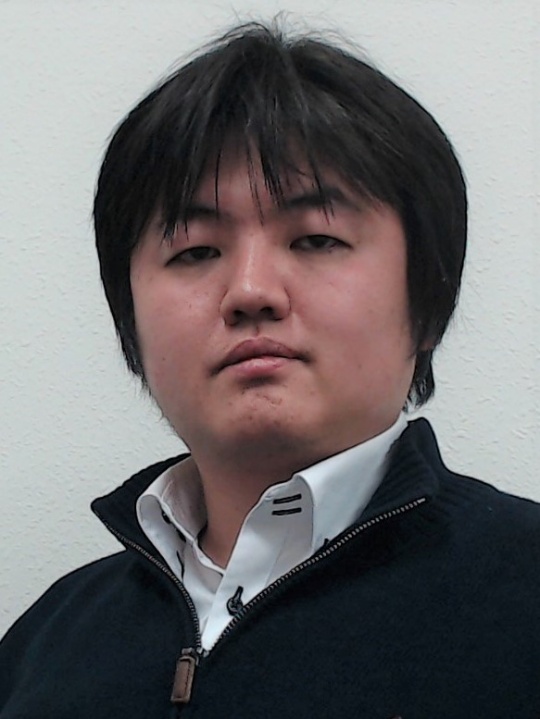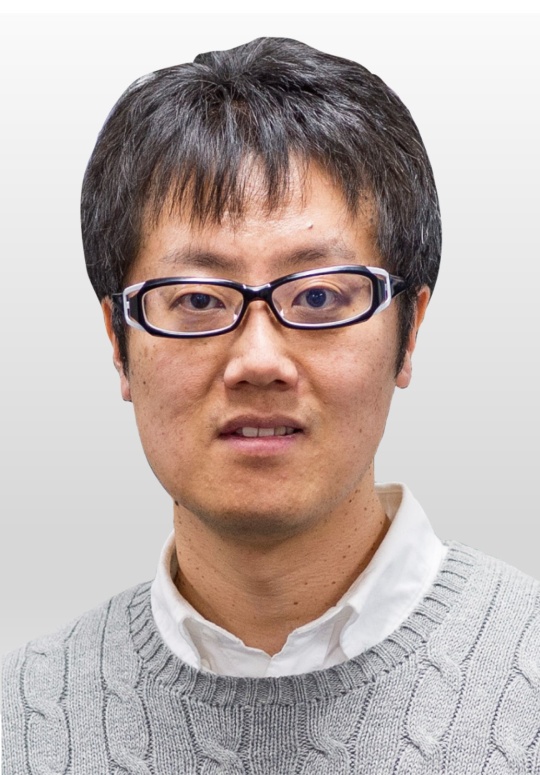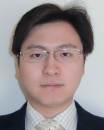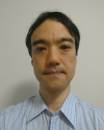IPSJ/IEEE-CS Young Computer Researcher Award
IPSJ/IEEE-Computer Society Young Computer Researcher Award
| Name of the Award | IPSJ/IEEE-Computer Society Young Computer Researcher Award |
| About the Award | The IPSJ and the Institute of Electrical and Electronics Engineers Computer Society (IEEE-CS) established a joint award in 2018 to honor young researchers in the field of computer science for their outstanding achievements and high expectations of their continuing progress. |
| Selection Process | The awardees should be decided annually by the joint award committee which consists of members from both IPSJ and the IEEE-CS. The decision should be confirmed by both societies. |
| Selection Criteria | The awardees should be young researchers who have outstanding achievements such as research presentations, publications and programming as well as high expectations of further achievements in the field of computer science. The awardees should be the members of the IPSJ and the IEEE-CS. |
| Conferment | The award will be presented at a conference organized or hosted by the IPSJ and the IEEE-CS. The certificates will be given at the award banquet. |
2025
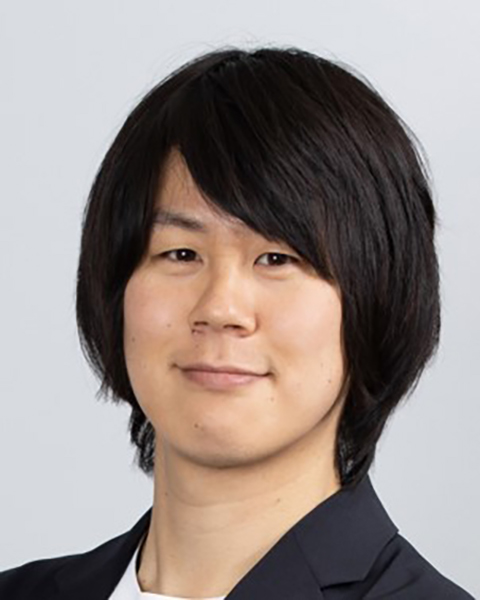 |
Taku Hachisu (University of Tsukuba)
|
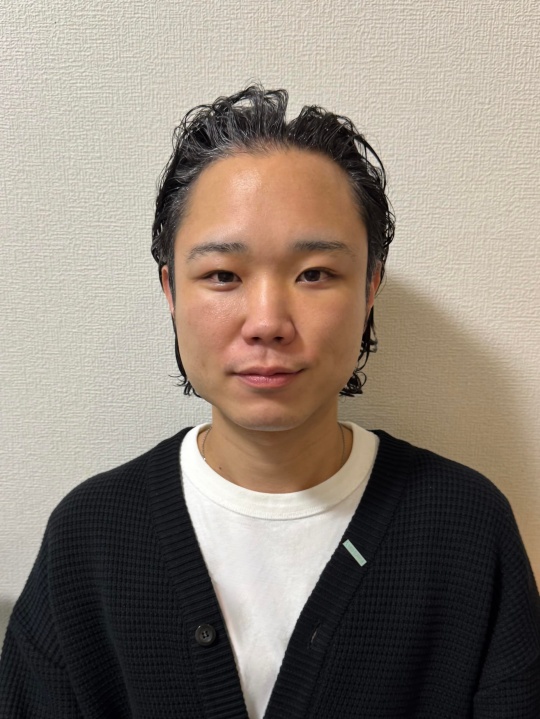 |
Takayuki Katsuki (IBM Research) Established indirect sensing method based on machine learning for information hidden in real-world uncertainties Takayuki Katsuki is a Senior Research Scientist at IBM Research – Tokyo. He received his Ph.D. degree from Waseda University in 2017. Since joining IBM Research in 2012, he has been engaged in research and development on machine learning, data mining, and artificial intelligence. He was also a JST CREST researcher from 2013 to 2019. He received the IEEE Computational Intelligence Society, Japan Chapter, Young Researcher Award (2011), the JSAI Incentive Award (2019), and the JSAI Annual Conference Award (2024). 【Recommendation】 Takayuki Katsuki led the development of sensor replacement technology in healthcare, where we sense phenomena at a fine-grained level with coarse-grained sensors, which enables us to replace intrusive fine-grained sensors with non-intrusive coarse-grained ones to reduce the burden on subjects. The technology he developed practically enabled users to replace intrusive arm sensors with non-intrusive bed sensors by achieving 30% lower error rate compared to the existing method, which leads to licensing to clients covering one million (1,000,000) Beds in the hospital/nursing facility (introduced such as in https://www.nikkei.com/article/DGXLASDZ25I8Q_W5A121C1TI5000/, https://news.mynavi.jp/techplus/article/20160602-iot_ibm/, https://www.gizmodo.jp/2016/07/mugendai-post_664838.html). The core technology is published as a paper in [ICML2023]. He showed that the observed values from sensors for magnitude, such as blood pressure, pulsation, and body are not necessarily in agreement with the actual magnitude. Especially, low values can mean either an actual low magnitude or incomplete observation. This leads to a bias toward lower values in labels and the resultant learning. He derived an unbiased and consistent learning algorithm (U2 regression) for this problem with the new class of loss functions by explicitly modeling incomplete observations due to asymmetric noise. He showed that this algorithm is unbiased as if it were learned from data that does not involve incomplete observations theoretically and significantly improved performance empirically. It addresses limited sensor-resource problems caused by such as the locality of equipment and the ill-posed nature of label collection generally, which contributes to broadening the applicability of machine learning by reducing the dependence on labels in practical fields. |
2024
 |
Narumi Takuji (the University of Tokyo)
|
 |
Yukino Baba (the University of Tokyo) Outstanding Research on Machine Leaning for Human-AI Collaboration Yukino Baba is an associate professor in the Graduate School of Arts and Sciences at the University of Tokyo. Her research interests include machine learning, human computation, and human-AI collaboration. Prior to joining the faculty of the University of Tokyo, she was a postdoctoral researcher at the University of Tokyo and the National Institute of Informatics, an assistant professor at Kyoto University, and an associate professor at the University of Tsukuba. She received her Ph.D. degree from the University of Tokyo. Her awards include the DBSJ Kambayashi Young Researcher Award (2017), the IJCAI Early Career Spotlight (2018), and the University of Tokyo Excellent Young Researcher (2023). 【Recommendation】 As AI research and development have advanced, it has become clear that AI capabilities are limited and that there are risks associated with AI making decisions independently. The focus is shifting toward collaboration between humans and AI. Yukino Baba has been an international pioneer in recognizing the importance of this human–AI collaboration from the early stages, and has been leading the way in this emerging field. Specifically, she has developed numerous machine learning techniques known as “truth discovery” that identify reliable individuals within a group using their individual answers to incorporate accurate judgment into AI, thereby contributing to the enhancement of AI safety. Although it is common to use labeled data in machine learning, she has also developed several foundational technologies for human-in-the-loop machine learning, which incorporate human judgment in various ways such as obtaining feedback for generative models. These developments have contributed to the realization of human-centric AI. Furthermore, she has successfully applied these technologies across various fields, including healthcare and drug discovery, achieving significant results. Additionally, she has achieved results in applying machine learning to key social and industrial challenges such as the provision of preventive medicine in developing countries. |
 |
Heming Sun (Yokohama National University) Research on Neural Network-based Learned Video Compression 【Recommendation】 Video consumes more than 80% of the internet traffic. Therefore, video compression is very important to reduce the burden of video transmission and storage. The applicant has been working on the algorithms and architectures of video compression for more than 10 years. When I was a master and doctor student, I mainly worked on the traditional video compression standard HEVC and contributed to the world-first HEVC 8K@120fps decoder chip.After joining Waseda University as an Assistant Professor, I mainly work on neural network-based learned video compression (LVC). LVC can be classified to hybrid scheme and end-to-end scheme. For the hybrid scheme, the applicant developed various neural networks to enhance the intra prediction and loop filter. For the intra prediction, the applicant proposed multiple neural networks to replace the original prediction modes in HEVC. For the loop filter, the applicant proposed a convolution filter which is adaptive for various quantization parameters (QP). For the end-to-end scheme, the applicant developed two state-of-the-art learned image compression (LIC) frameworks in 2020 and 2023. Furthermore, the applicant quantized the LIC network to generate a framework with fixed-point arithmetic. Finally, we developed a neural network engine for FPGA and build a real-time CPU-FPGA heterogenous coding system. The applicant has published more than 90 peer-reviewed international journals and conferences. The google citation is more than 1800. Regarding this research topic, the applicant has obtained 14 awards. The codes are all available at GitHub. |
2023
 |
Shigemi Ishida (Future University Hakodate)
|
 |
Zhi Liu (The University of Electro Communications) Outstanding research on point cloud video and VR video streaming His research interest includes video network transmission and AI/optimization empowered networks. He received best paper awards from IEEE MSN2020, IEEE ICOIN 2018, and outstanding paper runner-up from IEEE ICPADS 2022. He is the recipient of IEEE ComSoc Multimedia Communications Technical Committee (MMTC) Outstanding Young Researcher Award, IEICE young researcher award. 【Recommendation】 Dr. Liu focuses on point cloud video and VR video streaming and their applications. For example, for point cloud video, he has proposed a novel viewport prediction method, a novel semantic video tiling method and deep reinforcement learning empowered transmission scheduling, to name a few. For VR video, he has proposed a novel multi user VR transmission scheme by introducing video transcoding enabled multicast, optimized the transmission jointly considering the viewport prediction errors, etc. They have also built prototypes and verified the proposed schemes’ outperformances. By applying these research results in real world, Dr. Liu and his collaborators have jointly built smart grid monitoring system, etc., supported by 6 JSPS grants, and covered by newspapers and technical medias. The research results have been published in 60+ IEEE journal papers, including 5 ESI highly cited papers , and attracted 3500+ citations . He has been awarded 6 IEEE best paper awards from IEEE MSN2020, IEEE ICPADS2021, etc., and IEEE ComSoc MMTC outstanding young researcher. He has also been actively contributing to the community, by serving the editor of IEEE and IPSJ journals, organization committee of the IEEE and IPSJ conferences and IEEE/IPSJ technical committee officer. |
 |
Fumio Okura (Osaka University) Outstanding research on computer vision techniques which advanced the analysis and classification of botanical plants 【Recommendation】 Fumio Okura has actively worked for plant twins, i.e., reconstructing virtual twins of the plants in the metaverse. From the technical perspective, his work includes 1) reconstruction of real-world plants, 2) manipulation of plant appearances, and 3) plant science applications analyzing plant characteristics using plant twins. 3D reconstruction of plant shape and structure is a core part of his study. This topic brings notable challenges to the computer vision field due to the unique characteristics of plants, such as severe occlusions and complex branching structures. His methods effectively combine modern deep learning and traditional 3D reconstruction to reconstruct the partly hidden structure of branches and leaves. Plant twins are immediately helpful in plant sciences, such as for the automation of cultivation and breeding. He collaborates with plant scientists to seek the application of those technologies and to apply modern CV techniques for many practical plant-related problems. His achievement spans the interdisciplinary research field between computer and plant sciences, and he has published important and highly regarded papers in each field. He is leading the emergence of a new research field, plant phenomics, where computer vision plays an important role in acquiring plant phenotypes (e.g., shape and appearance). |
2022
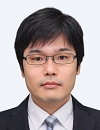 |
Mitsuaki Akiyama (Nippon Telegraph and Telephone Corporation (NTT))
|
 |
Akira Uchiyama (Osaka University) Research on Context Recognition by Multimodal Sensors He was a Visiting Scholar with the University of Illinois at Urbana–Champaign in 2008. He joined Osaka University in 2009. Since 2021, he is an Associate Professor at the Graduate School of Information Science and Technology, Osaka University. He is also a JST PRESTO researcher since 2019. His current research interests include mobile/wireless sensing and applications in pervasive and ubiquitous computing. He received 38 awards including Funai Information Technology Award for Young Researchers (2011), Kasami Award (2016), ICMU Best Paper Award (2018), and IPSJ DICOMO Best Conversant Award (2018). 【Recommendation】 His main research focus is context recognition by multimodal sensors. His notable achievements include localization, urban sensing, and healthcare. One of his remarkable achievements is core body temperature estimation using wearable sensors and environmental sensors for avoiding heat stroke in real-time. He has led a project to detect signs of heat stroke in the Society 5.0 project of the Ministry of Education, Culture, Sports, Science and Technology (MEXT), and developed low power sensors for behavior estimation and a backscatter-based behavior sensing platform in MEXT, JST's ACT-I, and PRESTO projects. As a young researcher in Japan, he is highly evaluated in this field. Also, he has collaborated with several companies for avoiding heat stroke, including the largest telecommunications equipment manufacturer in the world. He has published 30 journal papers and 36 international conference papers. He has coached many PhD/MS students and led and produced many excellent research achievements. His outstanding achievements include publications in international top conferences and journals such as PerCom, MobiSys, UbiComp, IEEE TMC, Elsevier PMC, and ACM UbiComp Journal (IMWUT). He has received 39 awards including ICMU2018 Best Paper Award. |
 |
Takuro Yonezawa (Nagoya University) Outstanding Research on Sensing and Application Platform for Urban Computing 【Recommendation】 Dr. Yonezawa has been engaged in research in the field of urban computing, especially urban-scale dense and large-scale data sensing, data distribution, and data analysis methods. In order to efficiently collect data from the real environment and to promote the utilization of data in various services, socially applicable and practical technologies are required. The method he has developed is very unique in that it includes a viewpoint to increase the affinity and acceptability of technology to society and tries to solve it with computer science technology, and is addressed as important research. In addition, his research is not limited to basic technologies, but he has been leading various empirical studies in multiple cities, using the developed technologies to devise and build new applications and services in collaboration with international industry-government-academia teams. Dr. Yonezawa's research achievements have been published in 30 journals and 82 refereed international conferences, and he has presented 102 research reports mainly at the Information Processing Society of Japan. He has received 32 awards for his research achievements, including two Yamashita Memorial Research Awards from IPSJ, one Digital Practice Award, and awards at six international conferences, including organized by IEEE. |
2021
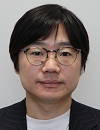 |
Daisuke Sakamoto (Hokkaido University)
|
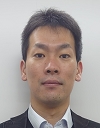 |
Takuya Azumi (Saitama University) Outstanding Research on Embedded Real-time Platform 【Recommendation】 Prof. Takuya Azumi has been working on embedded real-time platform. Specifically, he has led the fields of embedded real-time systems. His research contributions have been published in 23 journals, and 61 international conference papers among which 8 journals, 45 international papers (especially, the IEEE ICCPS 2018 paper has been cited 125 times) have been published by IPSJ and IEEE-CS. He received 10 awards from IPSJ and IEEE-CS. He has presented more than 40 invited talks and 2 keynote talks. He has received 176.6M JPY research budget thus far as a principal investigator. He is an IPSJ member since 2004, IEEE member and IEEE-CS member since 2006. Regarding activities for IPSJ, he has been a committee member of SIG-EMB, SIG-OS, and a PC chair of SWEST 15/16/17 which is an IPSJ SIG-EMB workshop, and a PC member of ESS which is an IPSJ SIG-EMB symposium. Regarding activities for IEEE, he has served as a WiP chair and a Publicity co-chair of CPSNA 2013, a Publication Chair of CPSNA 2014 and CPSNA 2015, and a PC member of EUC 2011, ISORC 2014/2015/2016, RTCSA 2015/2020, and COOL chips XIX. In addition, he contributed to making an IEEE standard (IEEE 2804-2019 Published Date:2020-01-24). |
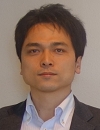 |
Yuichi Sei (the University of Electro-Communications) Privacy-Preserving Web/IoT Data Analysis 【Recommendation】 Various people and organizations are considering whether to build and spread new services that utilize Web and IoT data across the board. It is expected that systems and infrastructure will be in place to distribute and combine these data in the future. However, it will be difficult to predict from where personal privacy information will leak. Therefore, the construction of a solid common framework to protect privacy is an important issue. The purpose of this study is to protect and share Web/IoT data containing privacy information to enable safe, secure and accurate analysis. He developed the world's first algorithms for data collection, machine learning, and statistical analysis of data containing more than tens of thousands of attributes with errors and missing values, while protecting privacy. He is collecting IoT data, including privacy information, by having subjects live in an apartment building, and confirming the usefulness of the proposed algorithms for real-world data. The research is being conducted with an eye toward real-world applications, taking into account the combination of unknown data and errors, and has been mathematically rigorously proven to be safe. He is on track to become one of the world's top researchers in both theory and practice. |
2020
 |
Fuyuki Ishikawa (National Institute of Informatics)
|
 |
Ryota Shioya (The University of Tokyo) Outstanding Achievements on Microprocessor Architecture 【Recommendation】 Prof. Shioya has outstanding achievements in research on high-performance, low-energy microprocessor architectures. It is well known that microprocessors are key components of computer systems, and their architectural optimizations ate critical challenges. Although microprocessor research itself has a long history, still many vendors and researchers keep trying to develop new technologies. His distinctive contribution is the “innovative front-end design” of microprocessors. Many researchers have focused on “back-end design,” where actual calculations like addition and subtraction are executed. In contrast, Prof. Shioya discovered the significant potential to optimize the front-end (instruction fetching, decoding, and register reading) part, then proposed a new concept to make the front-end more intelligent. This approach changes the design balance of microprocessors, and it has not so far been explored in our community. Based on the new concept, he has proposes innovative ideas that significantly improve the performance-energy efficiency of microprocessors. His three papers have been accepted in a TOP tier computer architecture conference called MICRO (IEEE/ACM International Symposium on Microarchitecture) that has the oldest history in this research area (acceptance rate is around or less than 20%). Prof. Syoya is the only young researcher whose papers were constantly accepted at the top conference. |
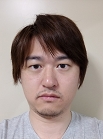 |
Kazuya Murao (Ritsumeikan University) Outstanding Research on Human Activity Recognition for Wearable Computing 【Recommendation】 Dr. Kazuya Murao is leading research on the field of human activity recognition for human-computer interaction. One of his outstanding research is about context-aware wearable sensor. His proposed system improves the granularity of contexts of a user situation and supplies power based on the optimal sensor combination by reducing energy consumption. In addition, in proportion to the remainder of power resources, the proposed system reduces the number of active sensors within the tolerance of accuracy. His researches are highly evaluated by international research communities including wearable computing, interactive systems, and so on. |
2019
2018
Press release (Japanese)

